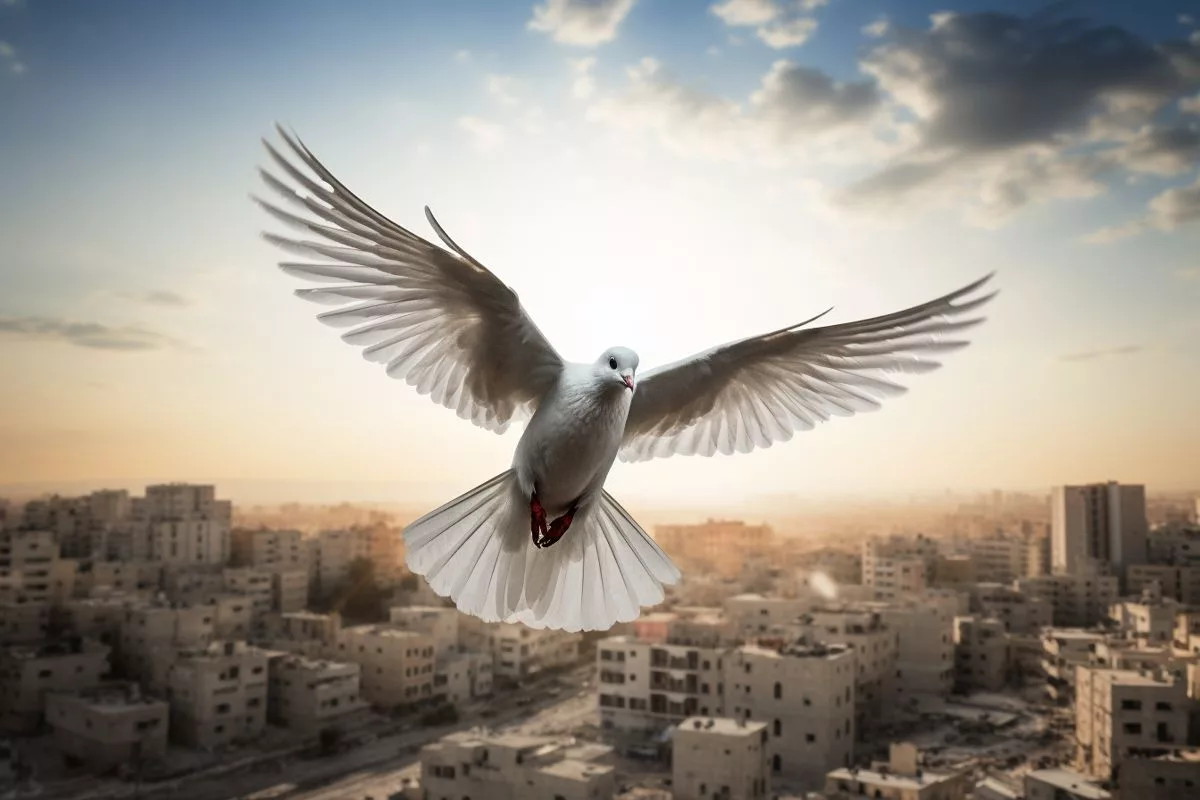South Africa demands that Israel should face responsibility for the bombing of non-fighters and civilian areas. South Africa is deeply concerned about Israel’s bombing near a Jordanian field hospital in Gaza which injured hospital staff. South Africa is worried about the pattern of aggressions targeted at medical institutions, schools, and holy sites in Gaza. The nation advocates for an immediate ceasefire, intensified peace initiatives, and prosecution of those responsible for war crimes and crimes against humanity.
What is South Africa’s stance on Israel’s bombing in Gaza?
South Africa has expressed deep concern over Israel’s bombing near a Jordanian field hospital in Gaza, which led to injuries sustained by hospital staff. The nation is increasingly wary of the pattern of aggressions targeted at medical institutions, schools, and holy sites in Gaza. South Africa advocates for an immediate ceasefire, the establishment of humanitarian corridors, intensified peace initiatives, and prosecution of those responsible for war crimes and crimes against humanity. The nation firmly asserts that there is no legal, ethical, or moral grounds for such violent deeds.
South Africa’s Deep Concern Over Israeli Aggression
South Africa, a nation recognized for its dedication to human rights and justice, has outspokenly expressed intense worry over Israel’s bombing near a Jordanian field hospital in Gaza on November 15, 2023. This unconscionable action led to numerous hospital staff sustaining injuries while they were striving to give medical aid to casualties of the Israeli onslaught.
The event does not stand alone. South Africa has been increasingly wary of the pattern of aggressions aimed at medical institutions, schools, and holy sites in Gaza. These places, typically considered sanctuaries for the civilian inhabitants, are tragically becoming the nucleus of the havoc that afflicts the area.
Civilian Casualties and Injustifiable Violence
The core victims of this calamity are the civilians who are suffering the worst of the atrocities. Among the myriad victims is Mr. Ahmed Abbasi, the manager of the Gift of the Givers Foundation office in Gaza. Tragically, Mr. Abbasi and his sibling were killed by the Israel Defence Force (IDF) while returning from their morning prayers on November 16, 2023.
The unfortunate demise of Mr. Abbasi underscores the toll of this conflict, which not only snatches lives but also deprives communities of their humanitarian servants. South Africa has expressed its indignation at these unjust killings of civilians and aid workers, firmly asserting that there is no legal, ethical, or moral grounds for such violent deeds.
Legal Obligations and the Call for Accountability
As the occupying state, Israel has a duty to safeguard the civilians living in Gaza. This responsibility is recognized by the global community, along with the understanding that it is utterly inhumane to risk the lives of Palestinians seeking protection from the severe bombings and warfare.
International humanitarian law (IHL), specifically the Fourth Geneva Convention, bolsters this perspective. It explicitly dictates that health establishments and units, including hospitals, should be immune from attack. This immunity also applies to medical personnel, the wounded and ill, and emergency vehicles.
South Africa demands that those responsible for the bombing of non-fighters and civilian areas should face prosecution for war crimes and crimes against humanity. The nation also advocates for investigations into possible genocide, considering the escalating civilian death count in Gaza and the West Bank.
Advocacy for Peace and Responsibility
South Africa, reflecting the United Nations General Assembly‘s resolution, is advocating for an immediate ceasefire and the establishment of humanitarian corridors. These pathways would enable the delivery of much-needed food, medical supplies, and fuel to afflicted regions.
Furthermore, South Africa is recommending that the United Nations deploy a speedily protective force. This would offer a much-needed shield for the civilian population and hinder further bombings.
South Africa is also campaigning for intensified peace initiatives. The nation envisages a political procedure that leads to the creation of a viable Palestinian state that can coexist peacefully with Israel. The boundaries of this state would be based on those existing on June 4, 1967, with East Jerusalem as its capital. This vision aligns with all relevant UN Resolutions, international law, and mutually agreed parameters.
South Africa’s position on this matter is a potent appeal to action. It is a reminder to the global community of the immediacy of this situation and the collective obligation we all bear in striving for peace and justice in the region. It also serves as evidence of the nation’s steadfast commitment to human rights, justice, and international law.
What is South Africa’s stance on Israel’s bombing in Gaza?
South Africa demands that Israel should face responsibility for the bombing of non-fighters and civilian areas. The nation is deeply concerned about Israel’s bombing near a Jordanian field hospital in Gaza which injured hospital staff. South Africa is worried about the pattern of aggressions targeted at medical institutions, schools, and holy sites in Gaza. The nation advocates for an immediate ceasefire, intensified peace initiatives, and prosecution of those responsible for war crimes and crimes against humanity.
Why is South Africa concerned about Israel’s aggression?
South Africa is increasingly wary of the pattern of aggressions targeted at medical institutions, schools, and holy sites in Gaza. These places, typically considered sanctuaries for the civilian inhabitants, are tragically becoming the nucleus of the havoc that afflicts the area. The nation firmly asserts that there is no legal, ethical, or moral grounds for such violent deeds.
Who are the victims of this conflict?
The core victims of this calamity are the civilians who are suffering the worst of the atrocities. Among the myriad victims is Mr. Ahmed Abbasi, the manager of the Gift of the Givers Foundation office in Gaza. Tragically, Mr. Abbasi and his sibling were killed by the Israeli Defense Force (IDF) while returning from their morning prayers.
What are Israel’s legal obligations in the conflict?
As the occupying state, Israel has a duty to safeguard the civilians living in Gaza. This responsibility is recognized by the global community, along with the understanding that it is utterly inhumane to risk the lives of Palestinians seeking protection from the severe bombings and warfare. International humanitarian law (IHL), specifically the Fourth Geneva Convention, bolsters this perspective. It explicitly dictates that health establishments and units, including hospitals, should be immune from attack.
What is South Africa advocating for?
South Africa is advocating for an immediate ceasefire, the establishment of humanitarian corridors, intensified peace initiatives, and prosecution of those responsible for war crimes and crimes against humanity. The nation also recommends that the United Nations deploy a speedily protective force to offer a much-needed shield for the civilian population and hinder further bombings. Furthermore, South Africa is campaigning for intensified peace initiatives and a political procedure that leads to the creation of a viable Palestinian state that can coexist peacefully with Israel.
What is South Africa’s position on this matter?
South Africa’s position on this matter is a potent appeal to action. It is a reminder to the global community of the immediacy of this situation and the collective obligation we all bear in striving for peace and justice in the region. It also serves as evidence of the nation’s steadfast commitment to human rights, justice, and international law.








